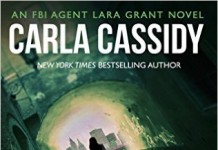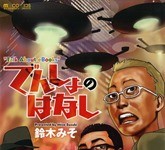 The Creative Commons licensing system has gone hand in hand with a lot of e-book-and e-writing-related news. For example, Cory Doctorow and others use it to give their e-books away for people to read for free while retaining rights to other uses, and Ficly (and its predecessor Ficlets) uses it to permit selected uses of reader-submitted content. (In fact, it is because Ficlets used that license that Ficly was able to rescue its predecessor’s archives.)
The Creative Commons licensing system has gone hand in hand with a lot of e-book-and e-writing-related news. For example, Cory Doctorow and others use it to give their e-books away for people to read for free while retaining rights to other uses, and Ficly (and its predecessor Ficlets) uses it to permit selected uses of reader-submitted content. (In fact, it is because Ficlets used that license that Ficly was able to rescue its predecessor’s archives.)
Lately, ASCAP has launched a fundraising campaign painting Creative Commons (as well as Public Knowledge and the Electronic Frontier Foundation) as a threat to copyright. “They say they are advocates of consumer rights, but the truth is these groups simply do not want to pay for the use of our music,” writes ASCAP in a fundraising letter. ASCAP has subsequently received a number of complaints from members over what the members see as a misrepresentation.
Lawrence Lessig, who helped found two of those organizations and has been on the board of all three, has written an editorial in response in the Huffington Post. Lessig explains that Creative Commons are copyright licenses, and need copyright to exist in order to be able to work at all.
He points out that there is nothing in the Creative Commons license stating that money may not be charged for works licensed under it, and that a number of artists such as Nine Inch Nails have earned record sales from Creative Commons-licensed songs.
Instead, the only thing Creative Commons wants to make free is artists — free to choose how best to license their creative work. This is one value we firmly believe in — that copyright was meant for authors, and that authors should have the control over their copyright.
Lessig then challenges ASCAP President Paul Williams to a public debate on the issues, and even offers to sing one of Williams’s songs as part of the event.
I find it disappointing that ASCAP is promoting such a skewed point of view, and hope that Lessig’s and it’s members’ responses lead it to rethink its position.
(Found via BoingBoing.)

































I don’t understand what ASCAP is on about. I don’t understand what Lessig is on about. I don’t understand how this relates to e-books.
I do understand that the Creative Commons licenses (as written) are deeply flawed, and my suspicion is that ASCAP’s problem goes like this:
Jason’s Unknown Garage Band records a song written by an ASCAP member. They release their recording on teh Intarwebs under a Creative Commons license. The CC licenses—version 2 and later—include terminology like this (emphasis added):
So it’s up to the listener to determine if the songwriter’s rights have been infringed upon. Which, of course, the listener has no way of knowing. Or doing much about. And has no interest in doing much about it, either.
This has become a problem with photographs, where photos are routinely released—especially on Flickr—under a CC license even though no model releases have been obtained from the people in the photos. Virgin Australia overlooked this detail back in 2007, and used a CC’ed photo from Flickr in an advertising campaign, then got sued by the woman in the photo.
Anyway, I don’t see how this is going to relate to e-books. Which may be just a failure of my imagination. 🙂
I mentioned how it relates to e-books in the first paragraph, actually.
I understand that some e-books are released under Creative Commons licenses. What I don’t understand is how ASCAP’s activities would affect e-books. E-books generally aren’t copyrighted performances of other copyrighted works. There isn’t a “second level” of copyright that needs to be worried about, which is what I think ASCAP is on about: protecting the copyrights of creative artists from the effects of inconsiderate licensing by performing artists.
I suppose that for e-books there could be some issues with cover art, if it’s not created by the author and if the artist retains any rights.
There’s certainly a parallel in audiobooks, though. Imagine if someone made a recording of themselves reading a Harry Potter book and then released the recording under Creative Commons.
There’s also the fact that if ASCAP’s campaign negatively affects the perception of Creative Commons, authors who want to use it to release e-books under such licenses might have a harder time talking their publishers into it.
Chris, I agree. This looks like ASCAP using FUD to discourage authors (and perhaps publishers) from using anything other than the DMCA approach to copyright. Not nice.
I’d also hazard a guess that the ASCAP letters are aimed at their own members, trying to whip up the faithful to a foaming-mouth frenzy at some imaginary enemy, the better to distract musicians from wondering why record sales are tanking and what ASCAP has been doing for them lately, anyway?
They have certainly won ASCAP a lot of press on the internet, and as the old adage goes, ‘there ain’t no such thing as bad publicity…’
— asotir